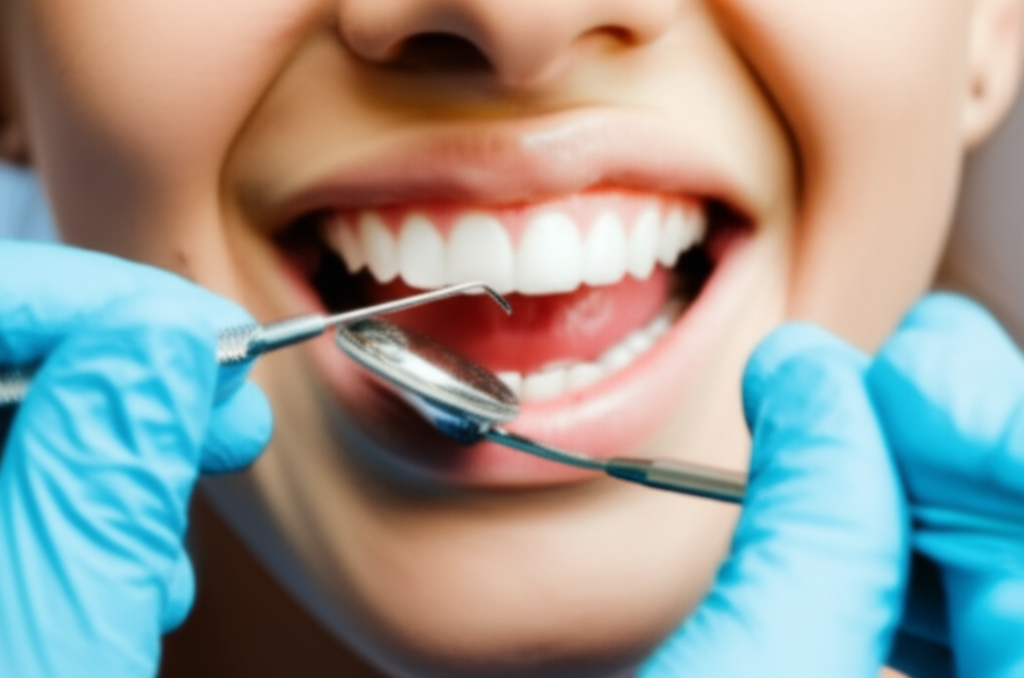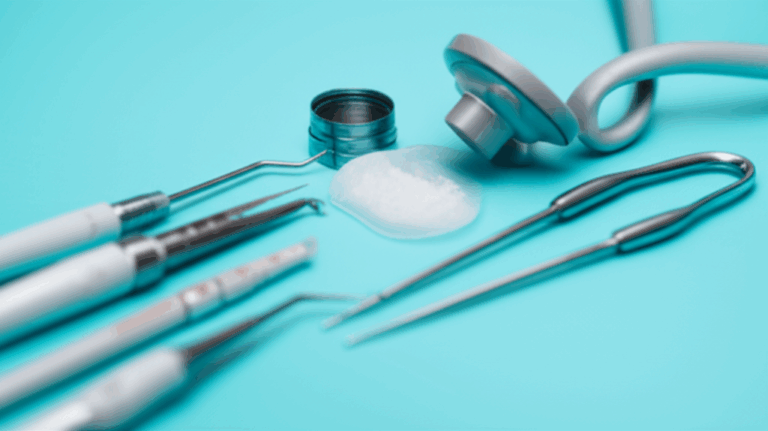
The Complete Timeline: How Many Years Does It Really Take to Become a Dentist?
Are you wondering about how to become a dentist? Want to know how long it takes and what’s involved? You’re in the right place! In this article, I’ll go through every step, tell you what you’ll need, and explain why the time you spend is worth it. By the end, you’ll be clear about the timeline, the stages to expect, and how to get ready for a great dental career.
Table of Contents
Why Do So Many People Want to Be Dentists?
Let’s first think about why so many people want to be dentists. You’ve probably been to a dentist and noticed how friendly and helpful they are. Dentists help people feel better by fixing tooth problems and helping people smile. That’s a big reason why many people choose this job.
But there’s more. Dentists always have work, they make good money, and they can own their own office. Some work in hospitals or schools, or even teach others. Most of all—helping others every day feels great.
But the path to becoming a dentist can seem long and kind of confusing. There are lots of steps and words like DDS, DMD, and residency. You might ask: How many years does it really take to become a dentist? Why are there so many steps? Here, I’ll break it down for you with plain language.
What’s the Shortest Path? (The Simple Answer)
A lot of students and parents just want the “short answer.” Here it is: it takes at least 8 years to become a dentist. That means 4 years of college and 4 years of dental school. If you want to be a specialist, like an orthodontist or oral surgeon, you’ll need another 2 to 6 years.
So, most dentists spend 8 to 10 years in school and training. If you want to be an oral surgeon (the longest path), it can take 12 to 14 years! That’s a lot, but each step teaches you more and helps you get ready for the real world as a dentist.
Here’s a quick table to make it clearer:
| Dentist Path | College | Dental School | Extra Training | Total Years |
|---|---|---|---|---|
| General Dentist | 4 | 4 | 0-2 (optional) | 8-10 |
| Orthodontist, Endodontist, etc. | 4 | 4 | 2-3 | 10-11 |
| Oral Surgeon (OMFS) | 4 | 4 | 4-6 | 12-14 |
Note: Times can change a bit. Some programs are faster, but these are normal.
Stage 1: What Do You Need Before Dental School?
If you want to become a dentist, you first need a bachelor’s degree. That means 4 years of college. Most people pick science classes like biology and chemistry, or a “pre-dental” major. This is because dental schools want you to take important science classes, like:
- Biology
- General Chemistry
- Organic Chemistry
- Physics
- Math and English
Think of these as the building blocks you’ll need. They help you do well on tests like the Dental Admissions Test (DAT). Your grades are important too. Most dental schools look for a good GPA (Grade Point Average).
But there’s more than grades. Schools also want to see that you’re a leader, a volunteer, or someone who does research. Time spent shadowing a dentist, helping at clinics, and joining science clubs can help your application a lot. My friend Sarah, who is now a dentist, spent summers working in a china dental lab, and it helped her learn about dental work and skills dentists need.
Stage 2: What Happens in Dental School?
After college, dental school is next. It lasts 4 more years. Here’s how it usually works:
The First Two Years:
You study in classrooms and labs—lots of science and learning about teeth. You practice with dental tools and start to learn about things like dental ceramics and even take care of some patients in a digital dental lab.
The Last Two Years:
This is where you start seeing real patients, but with a teacher or dentist watching you. You’ll work on things like fillings, dentures, crowns, and also test different specialties, like braces or kids’ dentistry.
At the end, you get either a DDS (Doctor of Dental Surgery) or a DMD (Doctor of Medicine in Dentistry) degree. Both are the same—just different letters.
What About Tests Like the DAT and Board Exams?
Let’s talk about the tests you’ll need. To get into dental school, you take the DAT (Dental Admissions Test). This checks your science knowledge, reading, and even drawing ability. Most people study for months for this test.
In dental school, you’ll take the National Board Dental Examinations (NBDE). Part I is after your second year, and Part II is near graduation. These check what you’ve learned. After school, you have to pass a clinical board exam. The exact exam is different in each place.
Many students worry about tests. I did, too! But with lots of practice and help from teachers—like Dr. Joe Dental, who helped me study for exams—you can do well.
General Dentist vs Specialist: What’s the Difference in Years?
There’s a difference between general dentists and specialists. Some become general dentists and stop there; others keep studying to do more special work. Both are good, but specialists go to school longer.
General Dentist:
After dental school, you can take the exams and get your license. Some choose to do an extra General Practice Residency (GPR) or Advanced Education in General Dentistry (AEGD), which is 1-2 years. These are more training but usually not required for a normal job.
Specialists:
If you want to straighten teeth, help kids, do root canals, or do surgery, you need more training. Each special area needs 2-6 extra years after dental school. Here’s another quick table:
| Specialty Type | Extra Years After Dental School |
|---|---|
| Orthodontist | 2-3 |
| Pediatric Dentist | 2-3 |
| Endodontist | 2-3 |
| Periodontist | 2-3 |
| Prosthodontist | 2-3 |
| Oral & Maxillofacial Surgeon | 4-6 |
| Dental Public Health | 1-2 |
| Oral Pathologist | 3-4 |
| Oral Radiologist | 2-3 |
Think about what sounds most fun or interesting to you. Every path takes time, but it’s about finding what you like best.
Can You Go Faster or Skip Steps?
Is there a way to make this journey quicker? Sometimes, but only a little. Some schools offer combined BS/DDS programs. Here, you start dental school early, combining college and dental school into a 6- or 7-year program. This can save you a year or two. These programs are very competitive and hard to get into.
Some people take a “gap year” before dental school to improve their applications or save money. Sometimes, you may have to retake classes or tests, which makes it longer.
If you trained as a dentist in another country and want to work in the US, you’ll need a special program for international dentists. These take 2-3 extra years and extra rules, but let you get the license you need.
What’s Next After You Graduate?
After you finish dental school, you have to get a license to work on your own. The rules are different depending on where you live, but all dentists must pass:
- A National Board Exam
- A clinical exam (like ADEX, WREB, or similar)
- A state law and ethics exam
Specialists need to do one more thing: Board Certification. This special test shows you know a lot about your area, like orthodontics or oral surgery.
Once licensed, you can work in many places. You could work for someone, start your own office, go to a hospital, or work in a removable denture lab. You might also teach or do research. Dentists also keep learning new things, like new tools or 3D printing.
Is It Worth All the Time and Effort?
Here’s the big question—is all this work worth it? It depends on you. If you like science, like to help people, and want a job with lots of need and good pay, dentistry is a great choice.
Dentists usually say they’re happy at their jobs. They help people, work good hours, and can build their own business. According to the American Dental Association, most US dentists make six-figure salaries. Also, people will always need dentists, so job security is strong.
But, dental school is expensive, and you’ll probably need student loans. It’s a lot of studying and hands-on work. Still, if you plan well, all the work pays off for many dentists—including me and my classmates.
How Do Dentists Help People and Build a Career?
Dentists don’t just fix teeth and make people smile—they do much more. They find early signs of gum disease or even serious problems like mouth cancer. By teaching people to brush and floss, they help others stay healthy for life.
Some use high-tech tools in a dental lab or create new smiles with tooth-colored stuff. Others work with dental implants or help design smiles. Dentists use their hands and their hearts at work.
From what I’ve seen, working with assistants, hygienists, and other techs showed me that being a dentist is about teamwork and caring for everyone.
Key Takeaways: What Should You Remember?
- Becoming a dentist takes at least 8 years (4 in college, 4 in dental school).
- Specializing takes more time—up to 14 years for some.
- You need good grades, test scores, and real hands-on practice.
- Dentists must pass tests and get licensed before working alone.
- Some programs are quicker, but most take the usual path.
- Dentists are needed, make good money, and truly help people.
- The journey is long, but great for those who love science, helping, and teamwork.
Most Important Things to Remember:
- It takes time, but each step gets you closer.
- Plan ahead—get good grades, find mentors, and try to get hands-on practice.
- Tests and licenses are needed to work.
- Special areas take even more years but can give you higher pay and new skills.
- Dentists are important for everyone’s health and smiles.
Reviewed by Dr. Joe Dental, DDS (Board Certified General Dentist)
References:
- American Dental Association (ADA)
- American Dental Education Association (ADEA)
- National Board Dental Examinations (NBDE)
- U.S. Bureau of Labor Statistics
If you want to learn more about dental school, labs, or being a dentist, check out other guides and tips. You’ll find resources for students, parents, or anyone thinking about this path. And remember—every big journey starts with a single step (or in this case, a single tooth!).








